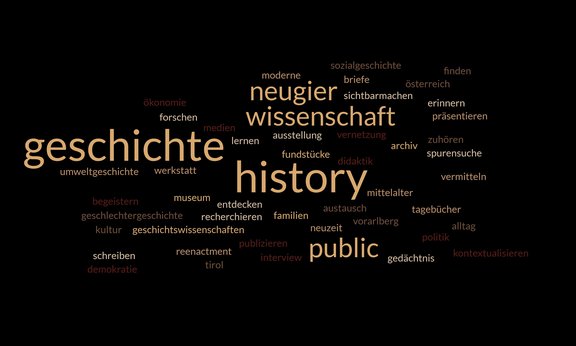Termine
- Programm des gemeinsamen Forschungskolloquiums der drei Historischen Institute im Wintersemester 2025/2026.
Aktuelles
- FAQs zum Umgang mit KI für Studierende, Lehrende und Forschende
Levke Harders und Heike Krösche im Podcast "Die Geschichtsstunde: Didaktik im Dialog" über Intersektionalität
Kontakt
Institut für Geschichtswissenschaften und Empirische Kulturwissenschaft
Universität Innsbruck
Innrain 52d (Geiwi-Turm, 6. und 7. Stock)
A-6020 Innsbruck
+43 512 507-43201
geschichtswissenschaften@uibk.ac.at bzw.
ekw@uibk.ac.at
Administration
Walder Judith
Institutsreferentin
Buttinger Petra
Sekretariat Geschichte des Mittelalters und Österreichische Geschichte
Osl Carina
Sekretariat Empirische Kulturwissenschaft und Geschlechtergeschichte
Robic Sabine
Sekretariat Geschichte der Neuzeit und Wirtschafts- und Sozialgeschichte










